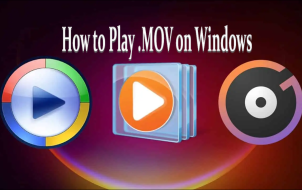If you’re playing “Diablo 4,” you’ve probably heard about a cool ally you can bring into battle — the Golem. This imposing-looking creature can be a formidable force on the battlefield in the right hands.
But how do you summon it?
You’re in the right place to find the answer, so let’s learn how to bring this monolithic companion into your game.
The Summoning Ritual
Let’s start by getting you up to speed on summoning. Summoning a Golem in “Diablo 4” takes a few activities and some skills. Here’s how to do it:
- Level up to at least 25.

- Complete a Priority Quest named “Call of the Underworld” to unlock the ability to summon a Golem.

- Head over to the Abilities tab and look for “Skill Assignment” and assign the Golem skill to your Hotbar. Replace one of your existing skills with it, and you’re ready to summon a Golem.

Unlike other skills in the Necromancer’s tree, the Golem summoning skill is a bit elusive – it’s not in the skill tree. This is why you don’t find it in the usual place, which might catch new players off-guard the first time around.
Summoning a Golem is not where it ends. You can customize your Golem with the Book of the Dead menu. Choose between Bone, Blood, or Iron Golems, each with distinct abilities for different playstyles.
The Three Flavors of Golem
You don’t just have to play with one type of Golem – that’s your teaser for what’s to come. You get to pick between three different Golem types with distinct abilities and characteristics. Take a look at what makes each one unique:
Bone Golem

The Bone Golem is the one you’ll start with when you unlock the Golem ability at Level 25. But don’t underestimate it. This creature is still formidable. Its specialties lie in crowd control tactics.
If you prefer to keep your enemies away, the Bone Golem is ideal. It’ll give you the upper hand by keeping your foes scattered and far from you. New players will find this creature especially useful as they begin their journey with the Necromancer class. It’s a great starting point and neat ability to call out even as you move beyond a novice Necromancer.
Blood Golem

If you’re an enthusiast of the macabre, then the Blood Golem has a good chance to be one of your favorites. Once you reach Level 28, you can unlock it.
The Blood Golem is an expert in vitality-draining. It can siphon enemies’ health and send it back to you, harming them and boosting you. Its unnerving power makes it a standout pick for players seeking a more individualized skill set.
Iron Golem

At last, you come to the Iron Golem, the highest-level Golem. This tough-as-nails tank will be there when you need it most, during the toughest encounters. Its sheer durability and damage absorption make it an ideal partner to bring into any fight, regardless of who your enemy is. If you’re the type of player who likes to lead the charge, the Iron Golem is a terrific companion.
You’ll get to unlock it at Level 32, when it’ll offer you plenty of protection while letting you focus on dealing out some serious damage.
Make Your Golem Better
The Book of the Dead helps you unlock Golems, but there are other uses for it, too. It offers three enhancements for your Golem – two are upgrades, while the third, “Sacrifice,” is a little more unusual.
- Absorb Damage enables your Golem to absorb 15% of the damage you’d otherwise receive.
- Enhanced Abilities upgrade gives the Golem a 25% damage reduction and 50% increased damage when it’s at max health.
- Sacrifice gives you a bonus perk of +10% maximum life but prevents you from summoning Golems.
Absorb Damage turns the Golem into a buffer between you and your enemies. Enhanced Abilities is possibly the most balanced of the three, in the jack-of-all-trades way. Sacrifice is an exciting choice, but weigh its pros and cons and see if it’s the best route for your play style.
Glyphs and World Tiers
The Necromancer class can equip the Rare Paragon Glyph known as the Golem. When placed in a Glyph socket, it provides additional boosts to the surrounding Paragon Nodes.
For instance, when you purchase 5 points of Willpower within its radius, Golems gain +6.0% in damage. Moreover, if you allocate 25 Willpower points on nearby Paragon Nodes, they gain an extra 25% increased maximum life.
When you reach World Tier 3 and complete the first Capstone Dungeon, more ways to customize your Golem will appear. Your random drops will now occasionally include Golem Glyphs. These shiny trinkets are powerful enhancements you can socket into your Paragon Board. Once you collect and socket them, you might get some of these effects:
- Damage Boost – Makes your Golem a more formidable force on the battlefield by bumping up the damage percent it deals with.
- Health Regeneration – This makes your Golem regenerate its health over time, so it can keep on fighting during prolonged battles.
- Cooldown Reduction – Reduces the cooldown time for summoning a Golem so you can call upon your ally more frequently.
- Elemental Resistance – Grants a Golem resistance to different types of elemental damage like fire, ice, or poison.
- Taunt Effect – Gives the Golem a taunting ability, forcing nearby enemies to focus their attacks on it and away from you.
This list is not exhaustive. You can harness many possible effects from Glyphs, so instead of spoiling all the fun, you’ll have to find them as you quest and explore.
PvP and Your Golem
Golems are terrific companions to take into the PvP zones. The hulking Golem may be an element of surprise and catch the opponents off-guard with a multitude of special abilities.
Golems that excel in crowd control can immobilize or slow down enemies so you can deal devastating blows or strategically retreat. The ones that can act as damage sponges will give you more room to take hits without your health falling too low. They can also serve as excellent distractions, as your enemy’s attention will be split between you and your competent summon.
The Golem and the Open World
“Diablo 4” has taken a new direction for the franchise and introduced proper open-world exploration. It’s worthwhile to bring your Golem along while exploring. They can help you gather resources, clear mobs when the enemy clusters become overwhelming, or act as a tank in boss battles. Your Golem might even eventually lend you a hand in some puzzles, as you might get it to do things like standing on pressure plates.
A Formidable Companion
If you bring a Golem to life in “Diablo 4,” you’ll have an excellent sidekick that will always have your back. There’s so much this creature can do that it fits nearly every game scenario, be it solo dungeon crawling, PvP, exploration, or tackling some of the most formidable enemies.
What type of Golem do you find most interesting? How would you customize it? Share your experiences in the comments below.
Disclaimer: Some pages on this site may include an affiliate link. This does not effect our editorial in any way.










